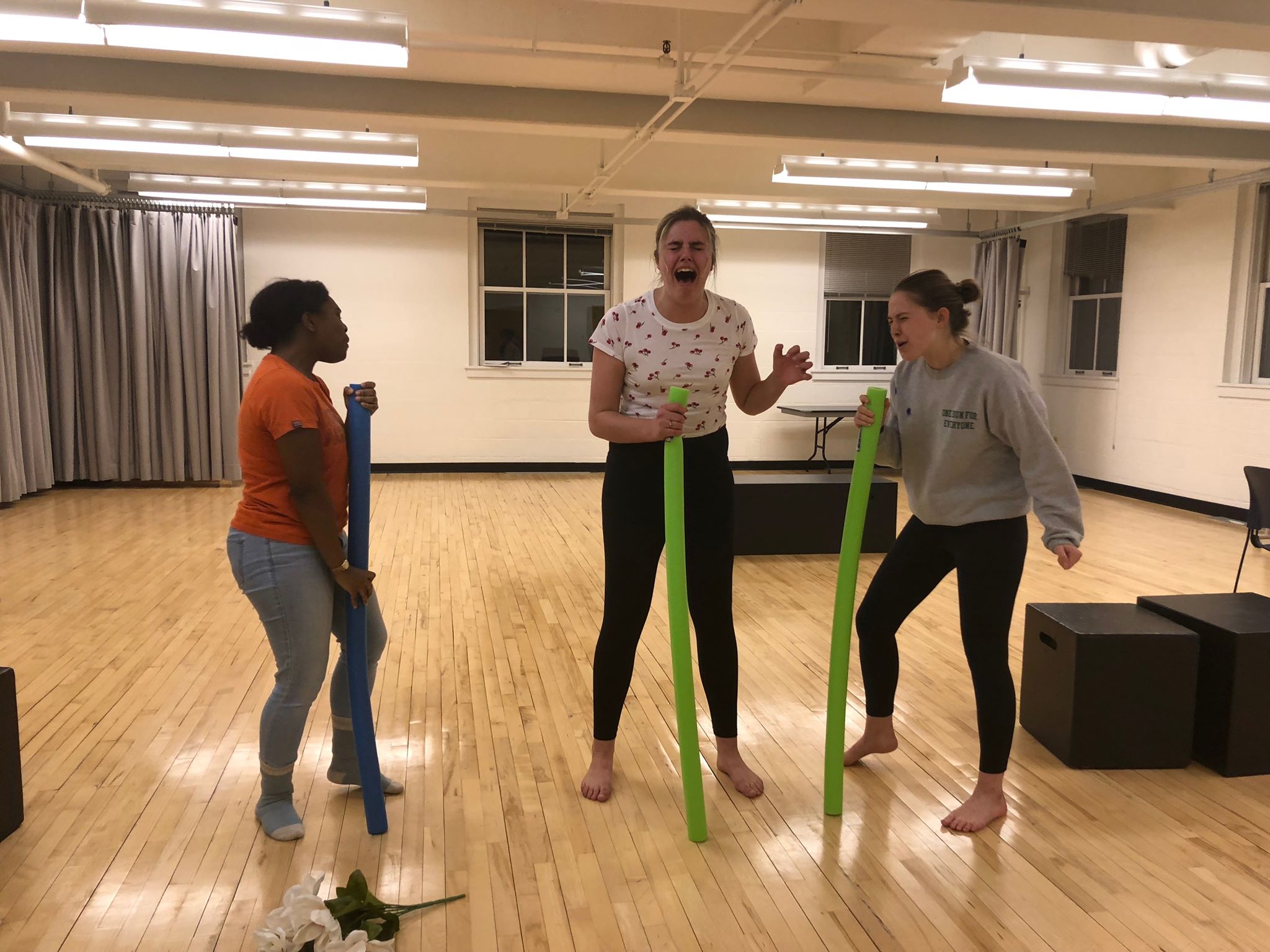

Last weekend, a group of students — with the support of The Green Room — performed “Lizzie: The Musical.” A rock-musical interpretation of a famous story from the Massachusetts area, “Lizzie: The Musical” is about a woman who was accused of killing her father and his wife with an axe but was found not guilty of the crime at trial.
The musical, directed by Alli Bennet ’18, featured a small cast of four women and a band for the musical accompaniment. The idea for the musical originated while rehearsing for another play, “Rosencrantz and Guildenstern are Dead,” when Emma Ratshin ’21 started humming one of the songs from “Lizzie.” Bennet recognized the song, and they started talking about possibly performing the musical. However, it wasn’t until The Green Room proposal meeting that their discussion started to become reality.
According to Ratshin, the process of actually bringing “Lizzie” together was hectic, but absolutely worth it in the end. For the first several weeks of practice, the cast did not have the actual sheet music for the piece and had to start learning their parts from the soundtrack, which was near impossible for the three and four-part harmonies. Eventually, the musical came together with the help of stage manager Claire Hawthorne ’21. The creators also managed to assemble a band, directed by Theo Peierls ’19.
Though the musical itself is set in 1892, the newer sound of a rock musical fits perfectly with the content and mood of the play. The Borden house is described in the musical as “pressure cooker,” too small for all of its inhabitants. Controlled by their awful and abusive father, the daughters Emma and Lizzie start becoming more and more desperate for change.
Lizzie Borden (Kiely Mugford ’21) suffers abuse from her father. She and her sister Emma (Ratshin) live in the house along with their father’s new wife and Bridget Sullivan (Dominique Manuel ’20), their housemaid who goes by the name Maggie. As the musical progresses, Lizzie becomes desperate to find a way out of her current situation, wanting to be like the birds she takes care of and fly away. Unfortunately, women at this time had few ways to be financially independent, and so the daughters are dependent on their father. Emma becomes fed up with her father’s new wife and leaves, but not before she essentially tells Lizzie to kill their father and his wife.
The musical’s climax is the actual moment where Lizzie kills them. Earlier in the musical, Lizzie frets that “someone will do something,” and we realize during the climactic scene that these were words meant to throw people off her track, as she is the one that is doing something. Perhaps Lizzie even suffers from some sort of dissociation, afraid of what she feels she might do. She may have been trying to ignore the urge to fix her situation, as she feels increasingly pushed towards drastic action. Right before Lizzie murders her father and his wife, the cast members sing “somebody will do something, somebody will try, somebody will do something, somebody will die.”
While this musical shows how Lizzie’s actions are understandable given her situation, it also shows the dangerous cycle of abuse that surrounds Lizzie and those near her. Her friend and neighbor, Alice Russell (Willa Grimes ’21), falls in love with her but is horrified and dismayed by her girlfriend’s actions, refusing to support her. Though Alice refuses to lie to protect Lizzie, Emma and Lizzie pay Maggie to keep quiet and Lizzie is acquitted. “Lizzie: The Musical” ultimately shows that regardless of Lizzie’s motives, nothing can justify the horrible murders she committed or the way that she manipulated those around her to keep her secret.